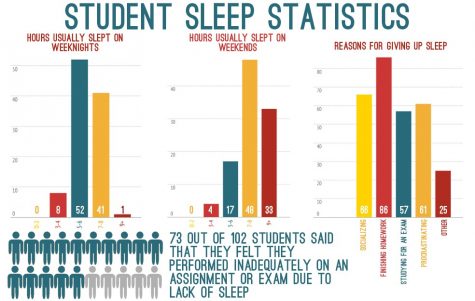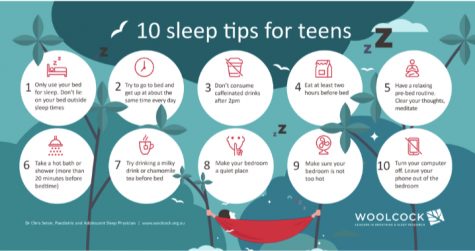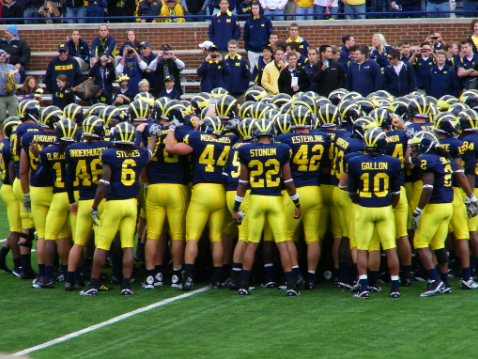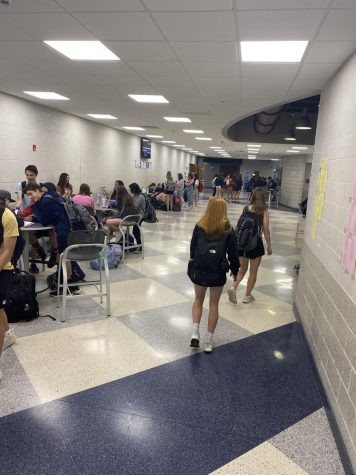The Effect of Sleep on Students
Many struggle with insomnia and other sleep disorders nationwide. As a child gets older, it’s proven that they indeed require more sleep as their body’s internal clock forces them to sleep later and later. When they enter adulthood, sleep requirements lower again.
During teenage years, a body is growing and changing, and experiences hormonal fluctuations. The Better Health channel notes that, “while the teenager falls asleep later, early school starts don’t allow them to sleep in. This nightly ‘sleep debt’ leads to chronic sleep deprivation,” and it continues a vicious cycle.
The recommended amount of sleep for a teenager is between 8-10 hours. But as shown on the graph below, on weekdays students average 5-6 hours of sleep versus the weekends where they get 8-9 hours of sleep.

This is all due to the fact that schools open before the teenager’s body can catch up on sleep, which leads to loads of health issues. Stanford School of Medicine studied the effects of sleep deprivation and found that it, “increases the likelihood teens will suffer myriad negative consequences, including an inability to concentrate, poor grades, drowsy-driving incidents, anxiety, depression, thoughts of suicide and even suicide attempts.” This affects the students’ performance in school too, drastically changing the outcome.
Although the early alarm in the morning makes it difficult to fully rest, there are things a student can do if you are struggling with your sleep habits. Creating a quiet, comfortable environment in your room will set you up for success along with creating a daily routine to follow.


Rose Engel is a senior who attends half days at West Morris Central and night classes at Centenary University. She is passionate about creative writing...
















